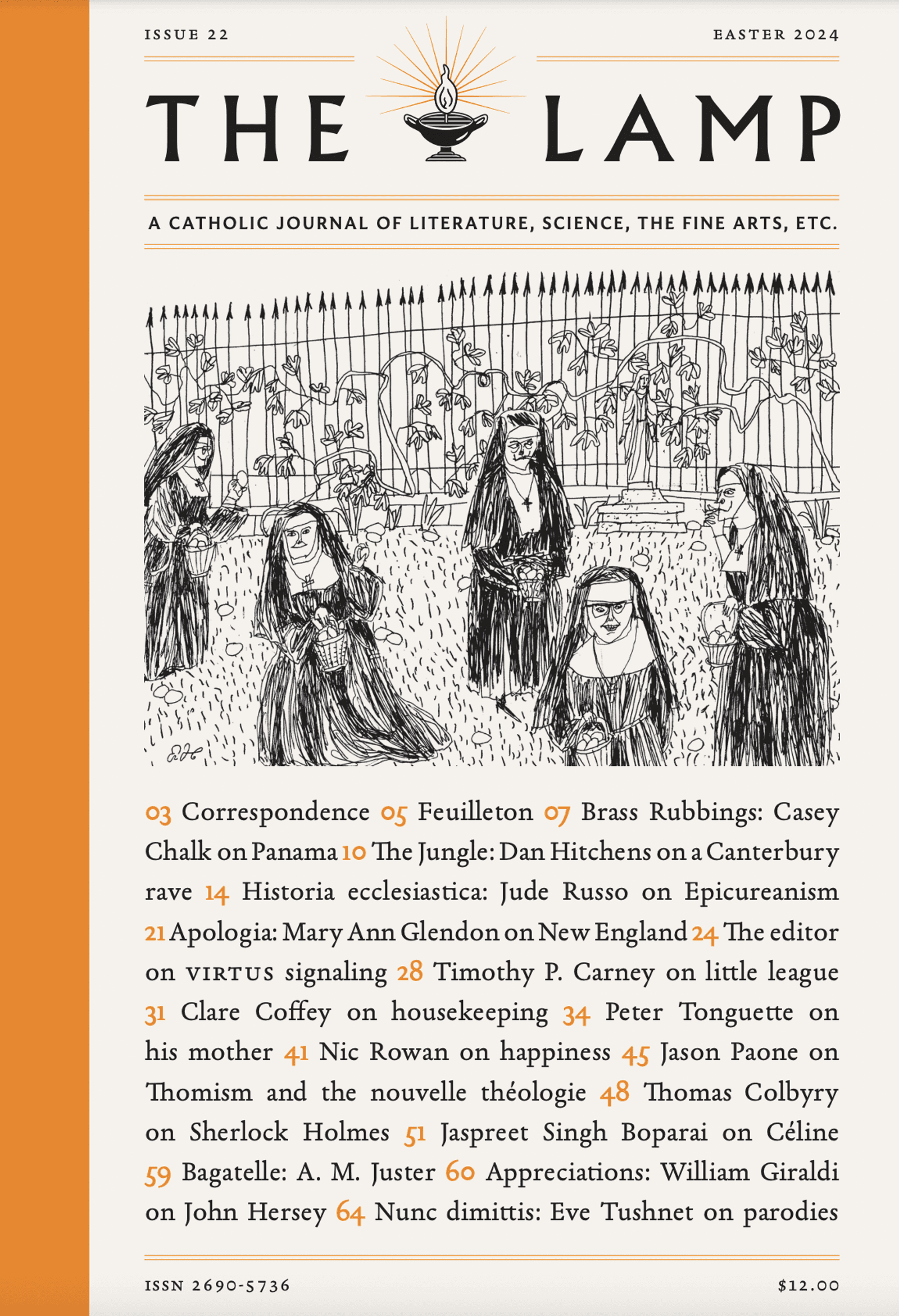The etymology of the word “deadline” is at once obvious and obscure. Obvious, because it is simply a compound word, dead-line, neither component of which is difficult to understand. But the adoption of the contemporary use of the word, to mean time limit or due date, lacks a solid connection to earlier usages: in the context of the American Civil War, a line beyond which prisoners who ventured would be shot; or, later, a term of art in the printing business. So it is evidently a very recent word to describe one of the indispensable tools of modern life—the backbone of productivity and bane of heedless enjoyment. (For Jude Russo on Epicureanism, see here.)
Except among those with remarkable discipline and planning skills, the way a deadline is met looks like this. First, you do no work at all toward your objective. Then, as you begin to feel the pressure of the deadline approaching, you begin to plan out the remaining days until delivery, measuring what is available against what is possible. Lastly, in a great flurry of frantic activity, while gulping down huge quantities of coffee, you accomplish everything at once, finishing shortly (by your own estimation) after you had originally agreed to. (For Thomas Colbyry on another habitual user of stimulants for mental work, Sherlock Holmes, see here.)
In my own experience the same phenomenon is observable across the span of one’s life. In youth, when you have the most energy and most time, you do not realize what time you possess and very little actually gets done. As you age, you realize how much more time you had when you were younger, yet accomplish more with less. (For Clare Coffey on housekeeping, a significant claimant on one’s time in adulthood, see here.) I know that there is a multiplying factor in my own life, where the busier I am, the more I seem capable of taking on; each additional responsibility creates the capacity to do even more.
The same progression continues until death or retirement. It is surely the case that with age comes responsibility, and that life’s pressures add urgency to one’s tasks; fear of our own mortality, and the short time allotted to us, drives us to do today what we may be cut off from doing tomorrow. Still, much of our industriousness in adulthood, so unlike the leisure of childhood, is due to habit; a part of our personality that becomes fixed simply by repeatedly doing and thinking that way for years. Saint Augustine’s most famous expectation of God’s love was the sharing of His creatures in His peace—for Thou hast formed us for Thyself, and our hearts are restless till they find rest in Thee. (For Nic Rowan on happiness, see here.)
The etymology of the word “deadline” is at once obvious and obscure. Obvious, because it is simply a compound word, dead-line, neither component of which is difficult to understand. But the adoption of the contemporary use of the word, to mean time limit or due date, lacks a solid connection to earlier usages: in the context of the American Civil War, a line beyond which prisoners who ventured would be shot; or, later, a term of art in the printing business. So it is evidently a very recent word to describe one of the indispensable tools of modern life—the backbone of productivity and bane of heedless enjoyment. (For Jude Russo on Epicureanism, see here.)
Except among those with remarkable discipline and planning skills, the way a deadline is met looks like this. First, you do no work at all toward your objective. Then, as you begin to feel the pressure of the deadline approaching, you begin to plan out the remaining days until delivery, measuring what is available against what is possible. Lastly, in a great flurry of frantic activity, while gulping down huge quantities of coffee, you accomplish everything at once, finishing shortly (by your own estimation) after you had originally agreed to. (For Thomas Colbyry on another habitual user of stimulants for mental work, Sherlock Holmes, see here.)
In my own experience the same phenomenon is observable across the span of one’s life. In youth, when you have the most energy and most time, you do not realize what time you possess and very little actually gets done. As you age, you realize how much more time you had when you were younger, yet accomplish more with less. (For Clare Coffey on housekeeping, a significant claimant on one’s time in adulthood, see here.) I know that there is a multiplying factor in my own life, where the busier I am, the more I seem capable of taking on; each additional responsibility creates the capacity to do even more.
The same progression continues until death or retirement. It is surely the case that with age comes responsibility, and that life’s pressures add urgency to one’s tasks; fear of our own mortality, and the short time allotted to us, drives us to do today what we may be cut off from doing tomorrow. Still, much of our industriousness in adulthood, so unlike the leisure of childhood, is due to habit; a part of our personality that becomes fixed simply by repeatedly doing and thinking that way for years. Saint Augustine’s most famous expectation of God’s love was the sharing of His creatures in His peace—for Thou hast formed us for Thyself, and our hearts are restless till they find rest in Thee. (For Nic Rowan on happiness, see here.)




